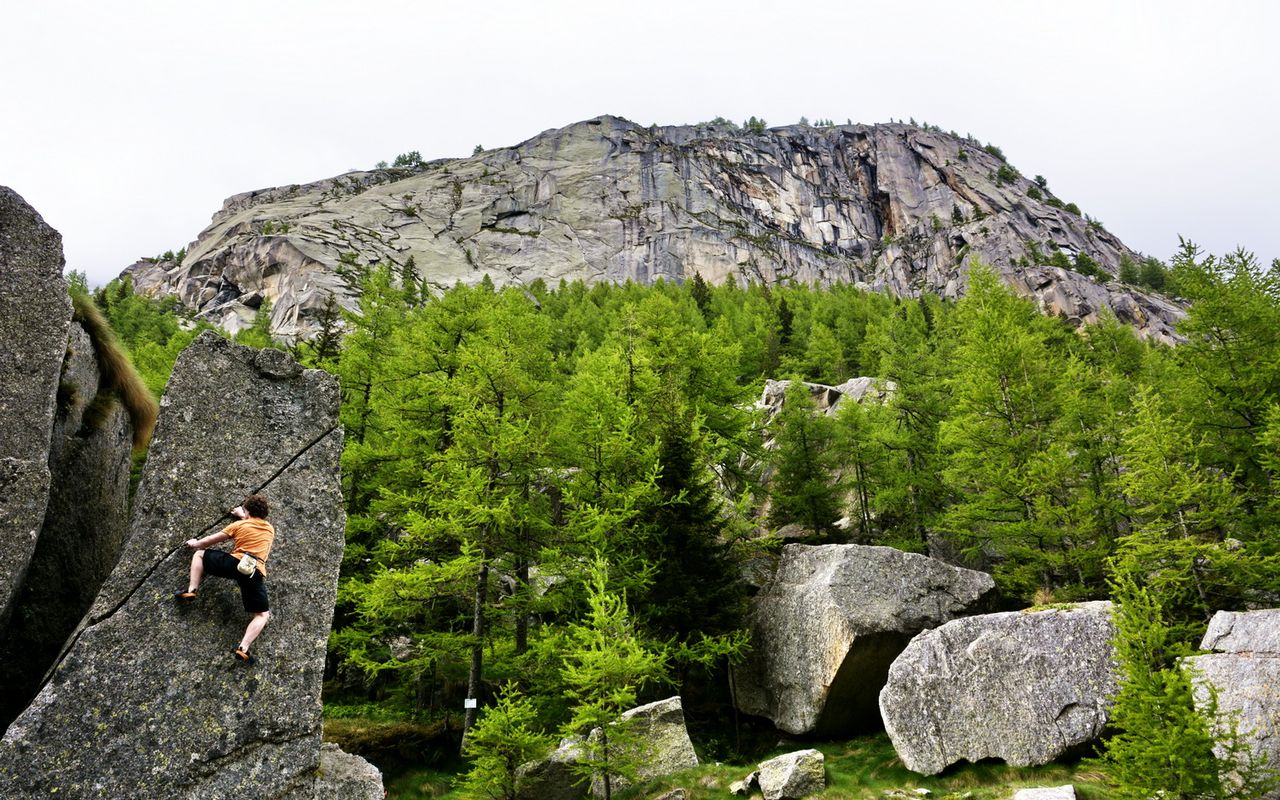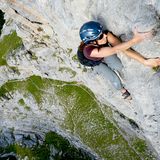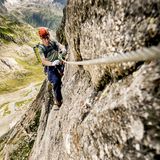
© Markus Oeschger
Climb responsibly Nature's privileged guest
The professional climber, Nina Caprez, is adamant: “Are climbing and protecting nature compatible? Of course! There is a lot that we can do to limit our impact on nature!”
We agree. Rocks are first and foremost the habitat and a place of refuge for many plants and animals. Endemic flowers grow in cracks and the birds use crevices in rocks and cliffs as nesting areas and for shelter. As a climber, you have a great responsibility towards this precious habitat and have to make sure it’s preserved, which will help limit the number of restrictions imposed.
Code of conduct for climbers
Here are a few suggestions for looking after and respecting nature, thus enabling all climbers, including yourself, to enjoy further experiences amongst the rocks.
1. Respect the restrictions
Find out about climbing prohibitions, annual closures and other restrictions by looking them up in advance on the SAC route portal, www.zones-de-tranquillite.ch and in the SAC guide book. Pay attention to the notice boards in the area.
2. Use the existing paths and itineraries
This helps protect the delicate biotopes of the fauna and flora. Don’t trespass on private property and close gates behind you.
3. Preserve the flora and nesting areas
Follow the existing detours and don’t go near the top of the rocks as these are fragile. Avoid rocks covered with dense vegetation, don’t pick any plants in the crevices and stay well away from nesting areas in the cliffs. Be as quiet as you can.
4. Keep climbing areas clean
Take your rubbish away with you. Should you need to go to the toilet, avoid doing so near water courses and cover up human waste and toilet paper. Paper hankies and wipes should not be used as they take a long time to decompose.





![[Translate to English:] Bouldern Lindental](/processed/fileadmin/8/0/csm_David_Schweizer_Lindental_Bouldern023_2adfd7c699.jpg
)

Other points to consider:
A responsible attitude and respect for nature are not only important during the climb. The preparation, the means of transport and accommodation are all essential to the success of the outing.
5. Travel ecologically
Take advantage of the numerous offers on public transport. If you must use a car, opt for Mobility or the Swiss Alpine Taxi which is available on some routes.
6. Respect any restrictions on access or parking
It is generally forbidden to drive along forest tracks. Avoid parking in unauthorized areas: this annoys farmers and land owners and can damage vegetation.
7. Eat local produce and save water and energy
Spending the night in the area and buying local produce helps support mountain regions and makes your climb eco-friendlier. Save water and energy in your accommodation: both are in limited supply!
8. Camp responsibly
If you wish to camp, check beforehand that it is permitted. Don’t leave anything behind other than your footprints. You will find more useful tips in our camping and bivouacking brochure (available in German and French).
9. Use existing campfire sites
Each new campfire destroys the soil and vegetation for years. Be aware of the risk of forest fires.
10. Keep dogs on a lead, especially in the forest
Dogs love chasing wild animals, which puts them under a lot of stress.

